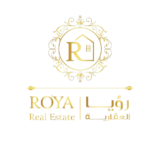Prominent Real Estate Companies in Qatar: A Closer Look
Qatar’s real estate landscape is marked by a variety of influential companies that have played significant roles in shaping the sector. Among the leading firms, Qatari Diar stands out as a pioneer in national development projects. Established in 2004, the company has cemented its reputation by delivering high-profile ventures such as The Pearl-Qatar and Lusail City, which exemplify luxurious living and modern urban planning. Qatari Diar’s focus extends beyond residential properties to mixed-use developments, combining commercial and retail spaces.
Another key player is Estithmar Holding, which specializes in integrated urban developments. With projects that span various sectors, including hospitality and retail, Estithmar’s commitment to enhancing the Qatari economy is evident through its ambitious initiatives, such as the Doha Festival City. This landmark development has become a vital center for shopping and entertainment, attracting both locals and expatriates alike.
Barwa Real Estate also claims prominence in the Qatari market, offering a wide array of residential, commercial, and mixed-use properties. Founded in 2005, Barwa has developed a strong portfolio, including the Barwa City project, which aims to provide affordable housing solutions in tandem with mixed-use facilities. This approach demonstrates the company’s commitment to catering to a diverse consumer base while contributing significantly to Qatar’s socio-economic growth.
Additionally, United Development Company (UDC) has established its standing through innovative projects like The Pearl-Qatar, diversifying the market with upscale financing and development solutions tailored to meet evolving consumer preferences. UDC’s dedication to sustainability is increasingly evident in its operations, aligning with global trends in the real estate sector. Collectively, these companies not only reflect the dynamism of the Qatari real estate market but also showcase the sector’s robust integration within the national economy.
Innovation and Future Prospects in Qatar’s Real Estate Market
The real estate market in Qatar is currently undergoing a transformative phase driven by the integration of innovation and technology. Local real estate companies are increasingly adopting advanced technologies to streamline their operations, enhance customer experiences, and stay competitive in a rapidly evolving market. These innovations include the use of smart technologies in property development, which allow for improved energy efficiency, enhanced security features, and increased overall living comfort for residents. The implementation of Internet of Things (IoT) devices has readily connected homeowners with their environments, providing remote control capabilities for essential functions such as lighting, heating, and security systems.
Moreover, sustainability has emerged as a significant focus for Qatar’s real estate enterprises. With growing awareness of environmental issues, developers are prioritizing sustainable practices, including the use of eco-friendly building materials, energy-efficient designs, and renewable energy sources. This shift not only contributes to a greener planet but also appeals to a conscious consumer base increasingly interested in sustainable living options. As such, properties that embody these principles are likely to attract more buyers and investors who value sustainability in their living spaces.
Additionally, the impact of digital marketing strategies cannot be overlooked in shaping the future of Qatar’s real estate landscape. With a greater emphasis on online platforms, local companies are optimizing their visibility and outreach to potential clients through social media, search engine optimization, and virtual property tours. As digital channels become more integral to business operations, the ability to engage with prospective buyers via innovative marketing techniques will likely dictate market success.
Looking ahead, the future of real estate in Qatar appears promising, bolstered by factors such as population growth, the upcoming FIFA World Cup, and various government initiatives designed to stimulate investment in the sector. These elements create a conducive environment for real estate development, fostering opportunities for businesses that are ready to adapt and innovate in order to meet the demands of an evolving market.
